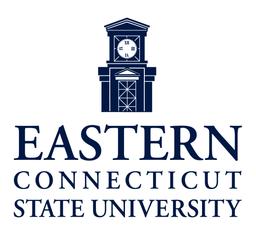
Eastern Connecticut State University
About
Eastern Connecticut State University was founded in 1889 as the Willimantic State Normal School to train young women to be teachers. While the school has expanded its mission significantly since then, it has always made teaching an integral part of its identity.
The mission of Eastern Connecticut State University, the state’s designated public liberal arts university, is to provide high-quality undergraduate and select graduate programs to a diverse population of talented students. Eastern’s inclusive residential campus, outstanding faculty, emphasis on teaching excellence and exceptional facilities raise students’ aspirations and cultivate engagement, inquiry, integrity and social responsibility.
In the traditional arts and sciences, as well as in pre-professional programs that are grounded in the liberal arts, Eastern students apply theory in practical settings. Faculty research, scholarship, creative work and community engagement inform teaching and learning, advance knowledge and enrich the liberal arts curriculum. The University is committed to serving the state of Connecticut and the nation by preparing its students for their future personal, professional and public roles, as leaders in both their communities and professional fields.

Programs
Bachelor’s & certification
Undergraduate Early Childhood, Elementary, or Secondary Education with Certification
Start ChecklistFrom 24 to 48 months
Program Duration
Hybrid
Program Format
Pre-Test Required
Yes
Relevant Links
Program Info
Upcoming Deadlines
Deadlines
Program Start
May 01, 2026
SummerAug. 01, 2026
FallAug. 01, 2026
FallFeb. 15, 2027
FallFeb. 15, 2027
Spring
Get Deadline Reminders
Application Fee & Annual Tuition
Learn how to get$100 Back
and apply for a$1000 Scholarship
$13,928
In State Tuition
$17,428
Out of State Tuition
$0
Application Fee
Ways to Lower Your Costs
Students at Eastern Connecticut State University have reduced the cost of their program using these methods. Check with Eastern Connecticut State University to see if you can, too!
$4,000-$5,000/year
Grants, Stipends, Scholarships
$5,000/year for two years of study Connecticut Minority Teacher Incentive Grant; $4,000/year Federal TEACH Grant
$2,500/year
Student Loans, Payroll Deduction
$2,500/year stipend for four years if outstanding debt and teaching in CT public school CT Minority Teacher Incentive Program grant
Loan Forgiveness
Federal Public Service Loan Forgiveness - 120 qualifying payments while working for qualifying employer
$2,600/year
Work Study, Working While Still Enrolled
$2,600/year for those qualifying for work study via FAFSA
For more information visit:Financial Aid Office
Certifications
Early Childhood Special Education Pre-K-3
Earth Science 4-12
Elementary Education Pre-K-6
English Language Arts 4-12
History 4-12
Mathematics 4-12
Physical Education Pre-K-12
Stats
Male
Female
20%
80%
American Indian or Alaskan Native
Asian
Black
Hispanic/Latino
Native Hawaiian/Other Pacific Islander
White
Two or more races
0%
1%
1%
5%
0%
89%
4%


